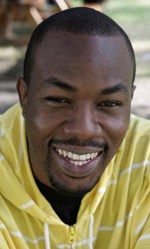A team of Canadian and US researchers have recently developed a new drug they describe as a "sharp shooter," they claim it will hopefully be a breakthrough in treating various types of cancers.
The drug, "CFI-400945" has been in development for over a decade and Dr. Tak Mak of the Princess Margaret Cancer Centre in Toronto and Dr. Dennis Slamon of the University of California are the head of the project. Both men are renowned researchers and their endeavor was funded mainly through donations costing about $40 million to produce the drug. The team hopes to begin human testing later this year and in a Toronto Star article Dr. Mak spoke about his connection with the disease.
"It's taken a long time, and I have known many patients and I know many people who have been affected," he said. Mak fought tears at press a conference in Toronto explaining the loss of his wife at the hands of cancer. He said the drug is focused on the treatment and not prevention but highlighted in the article that testing could present insight on prevention.
This is great news for the world, where many have lost loved ones to the wretched disease and left others suffering from the agony it brings.
I am hopeful that this will be a ground breaking drug that will help thousands. And I am eager to see if pharmaceutical companies will seek to make a gain that goes beyond the thought of fairness, but this all depends on trial success.
Let's face it; if this drug lives up to its potential, it can revolutionize the treatment of what many consider a terminal illness. But the pharmaceutical business is big business and I can almost guarantee that in some way shape or form that pharmaceutical companies will jump on this for slightly more unethical reasons. Yes, money, it is always the number one bargaining chip and it's certain that companies are salivating at the potential of "CFI-400945."
Research for many drugs including "CFI-400945" is done through fundraisers and donations by various conglomerates, societies and institutions. However this gratitude doesn't always translate to those who really need treatment. And not to sound like a pessimist but medical drugs on a whole is generally never yet without side effects. No matter how groundbreaking the potential of "CFI-400945" might be there will always be side effects. Over the years we have seen settlements galore by companies who failed to supply information about side effect as well as general false information. I'm sure many of you remember the record set in 2012, when GlaxoSmithKline (GSK)was hit with a $3 billion penalty after admitting to what many people believe is the 'biggest healthcare fraud in history'.
The offences were related to some of GSK's best-selling drugs between 1997 and 2004, they paid U.S. medics to prescribe potentially dangerous medicines to adults and children. This however is just one of many unscrupulous ways pharmaceutical companies work. Again this not me downplaying the research done by the US and Canadian team but just playing devil's advocate in a situation that we may over look due to the drug's potential impact.
We are living in an age where people are living longer but not necessarily healthier; the irony of this is how an uncontrollable like cancer can impact a society. It makes us stronger, allow us to bond in times of sorrow and fight beyond unimaginable odds. Hopefully this new discovery will allows us to move on from dedicating those emotions to cancer and to some other terminal illness humanity is battling. My message to these pharmaceutical companies is to let ethic rule and not capital. This new drug may be a couple years too late and by the time the pharmaceutical companies have had their way many people would have already checked out. But humanity's resilience is unprecedented and I know, through pain and tears we will walk steadfast in the path positivity. I hope ethics will prevail in a time when pain can be so painful. Make it work "doc" and let it not cost thousands in the first three years of sales and then seemingly average after when a profit was already made in the first year.




